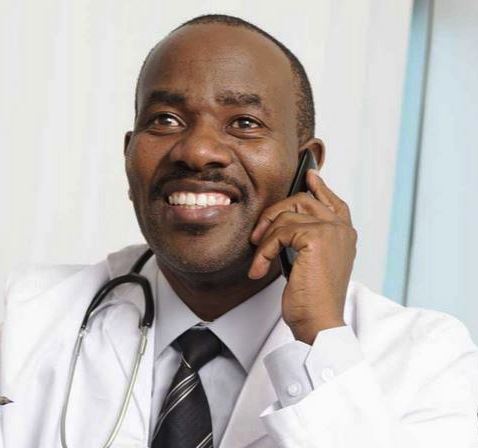In regions where basic access to health care is a challenge, mHealth can provide remarkable opportunities for transformational healthcare.
Mobile phones and Mobile Money penetration are well established in the country making mHealth a potential game changer in the administration of health care.
The Communications Authority of Kenya’s latest figures indicate that the ICT sector in Kenya continues to grow exponentially, with mobile penetration rate hitting 80.5 per cent. The number of mobile subscriptions today stands at a high of around 32.2 million.
Mobile technology can enhance overall consumer engagement in health care by increasing the flow of information; lowering costs through better decision-making, fewer in-person visits, and greater adherence to treatment plans; and improving satisfaction with the service experience.
According to WHO, Sub-Sahara Africa bears the highest disease burden in the world. Maternal deaths in particular, remains a major health challenge. One half of mothers are anemic with an uptake of recommended iron supplements during pregnancy below 3 per cent.
Malaria remains a health and socio-economic burden and accounts for 30 per cent of outpatient consultations. These diseases can easily be managed by use of mobile phones.
Mobile technology can also play a critical role in addressing the health needs of vulnerable groups. Persons with disabilities often face various challenges to the enjoyment of their right to health.
For example, persons with physical disabilities often have difficulties accessing health care, especially in rural areas, slums and suburban settings and women with disabilities may not receive gender-sensitive health services.
A low doctor – patient ratio of 1 doctor to every 100,000 people, means access to basic Primary health care and referral services, still remains a significant challenge facing the country’s health sector. Glaring disparities in service availability exist between rural hard to reach and urban areas.
mHealth can strengthen and improve the current health care system as it has the potential to deliver healthcare to patients in the most remote areas.
mHealth has the potential to scale up access to person-centered health care, with local solutions designed to ensure a holistic approach to the provision of services that are informed by the needs of the patient.
A person-centered care approach does not replace face-to-face consultation with a doctor, but rather is aimed at complementing it, to ensure a holistic approach to health, which invests in both population and individual health needs.
mHealth is designed to free-up general practitioners and clinics from dealing with non-life threatening conditions to allow them more time to provide a more in depth examination, whilst simultaneously reducing the cost of public health care.
According to recommendations based on Global Best Practices, 22 Medical Conditions are considered appropriate for remote diagnosis and treatment without the need for physical examination; based on certain exclusion criteria specific to each condition.
This list was made up after researching multiple telemedicine service providers worldwide. These include : Acne, Acid Reflux, Bacterial Conjunctivitis – uncomplicated, Cold sores, Contraception, Cystitis, Eczema, Emergency Contraception, Erectile Dysfunction, Flu/Common cold, Gastro-enteritis, Gout, Hay fever/Seasonal Allergies, Hair Loss- male pattern , Irritable Bowel Syndrome, Malaria, Migraine, Period Delay, Short Term Insomnia and Jet Lag, Stop smoking, Thrush, Travel Sickness and Chronics (HPT , Diabetes, Cholesterol, Asthma, Thyroid).
mHealth will enable Kenyans talk to a doctor about any one of these specified conditions and be treated for them, meaning the Kenyans need no longer to wait in long queues in waiting rooms, or taking time off work, or catching somebody else’s flu or just be exposed to other sick people.
By moving the recommended 22 conditions treatable without physical examinations to the mobile platform, state hospitals and clinics will have better capacity to treat more people with conditions that require physical examinations resulting in better health care access. An improved health care system is an improved economy as more money would be redirected to improving education and innovations that drive a region’s opportunities.
Transformative trends such as increasing chronic illness, accelerating health costs and increased consumer demand for health information and self-care are together expected to drive mobile solution growth in the country.
In countries where it has been implemented such as Indonesia, mobile technology is already having tangible effects on health outcomes in some areas and, if allowed to progress in supportive regulatory environments with strategic interventions by policymakers, it promises to do much more in the years to come.
Kelvin Massingham is the Regional Director-East Africa, Hello Doctor. kelvin@hellodoctor.com



































